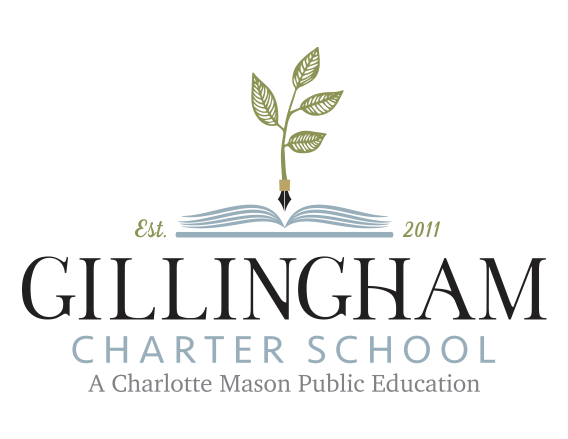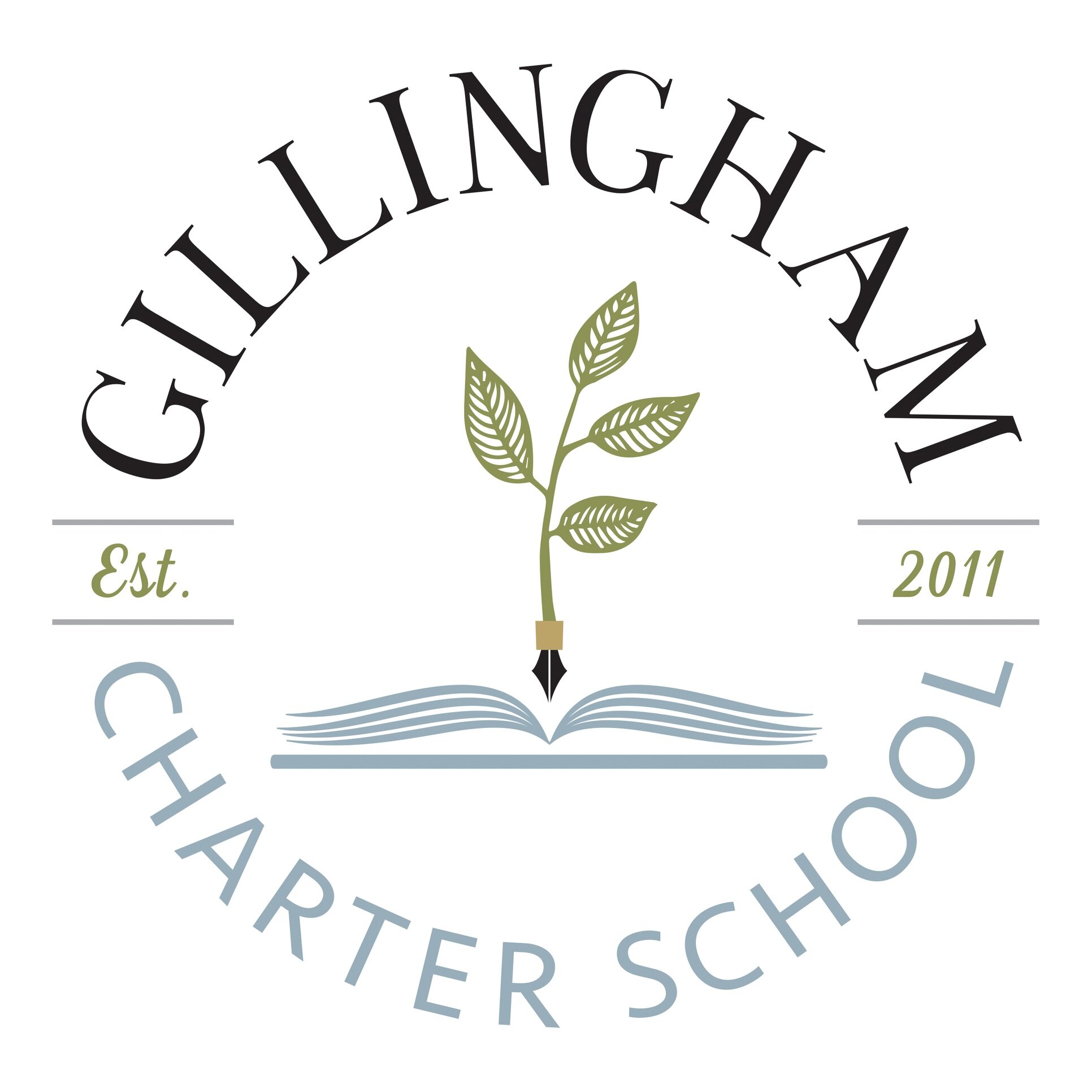Gillingham Curriculum
Living
Our curriculum is full of “living” books, “living” things, and “living” ideas that meet Pennsylvania’s state standards. As research demonstrates, books and other learning tools and activities must be full of concepts that intrigue, delight, question, and enlighten (thus “living”). We offer a rigorous and challenging curriculum using whole books that are narrative and informational, rather than relying solely on textbooks. Students read, narrate, and converse about living ideas that promote their real thinking. In math, we emphasize real life problems and understanding mathematical concepts so that memorized math facts, equations, and formulas are meaningful and understood.
Broad
Our curriculum is also broad. Our students experience what Charlotte Mason called a banquet of learning. Students deeply study and experience the sciences, math, English, history, and philosophy as well as the visual arts, music, Spanish, Latin, and Shakespeare. They also participate in a variety of School Sports as a regular part of their learning, starting in Kinderleben and continuing through graduation.
Accountable
Our curriculum and its implementation are monitored by both the Charlotte Mason Institute and Pennsylvania’s Department of Education. The Charlotte Mason Institute is a nonprofit organization that brings together relational educators from across the globe to accredit schools, train teachers, and tailor curriculum for public, private, and home schools. The Institute’s public charter branch offers a non-sectarian curriculum based on the teachings and philosophy of Charlotte Mason and meets all Pennsylvania Department of Education’s current state standards.
Balanced Literacy
Research shows that students need a Balanced Literacy Approach to learn to read because it balances phonics instruction with whole language instruction.
Gillingham’s balanced literacy approach incorporates living books, small guided reading groups, instructional level and independent reading level practice, teacher and student read alouds across the curriculum, writing across the curriculum, writing workshops, word study and Mason’s dictation, copywork and recitation.
Living Books
Charlotte Mason figured out that the person’s mind needs “food” just like the person’s body needs food. Mason once opined that feeding dry facts to the mind is like feeding sawdust to the body. The food for the mind is living and meaningful, so we feed the mind with living books and living things that are full of nutrients—living ideas.
A living book is chock full of ideas that ignite the imagination, pique the soul, and open up the world. Unlike dry, fact-filled textbooks and lectures, living books are written by someone who loves the subject and knows the subject well. Emotions and the imagination are engaged, so persons find it easy, not laborious, to remember events and important facts because they matter—they have meaning when mixed with the ideas. Thus, we read the best, well-written books that we can find in all subjects. Instead of PowerPoint lectures, students read a living book, narrate it and question it, and then they are ready to join with the author in the “Grand Conversation” about the ideas. Wonderful dialogue and synthesis ensue, and then we see THINKING taking place and becoming a habit for life.
To encourage our students to read the best books and to fill their minds with the best ideas, we created a Good Reads List. Students read nightly from this list or from books found in our classroom libraries.
Math and Science
We also offer alternative and dynamic practices in our mathematics programs. Gillingham’s mathematics curricula emphasize the understanding of math concepts so that memorization of facts, equations, and formulas is meaningful and understood. Students not only learn the core curriculum required by PA State Standards, but they also learn to truly understand math and its applications in real life. Math becomes “relevant and compelling.” Students can strategically engage with math in college courses, in the trades, and in day-to-day situations.
In our lower school, we follow the Singapore Primary Mathematics program in conjunction with Right Start Math. In the middle grades (6th-8th), we use the integrated program, Connected Mathematics Project.
In the upper school, we offer our own specially designed Algebra I course that meets the requirements of the Keystone Algebra exam, and we offer our students a specially designed use of the innovative Interactive Mathematics Program.
We offer an interesting, delightful science program that grows a sense of “awe” about our world. Students take nature walks, observe and paint specimens with the drybrush watercolor technique, experiment with FOSS materials, practice careful illustrated copy work, read living science books, and study outside the classroom at museums, labs, and the great outdoors. The living books and living things engage and ignite the curious scientist in all children of all ages!
The Arts
Do you know a Monet when you see it? Do you recognize Tchaikovsky when you hear him? Do you know how to compose a melody? Do you know “fa?” Do you know a Shakespearean insult? Do you know how to draw a circle freehand? Our students do!
Every year every class observes the works of 3 artists and 3 composers. In 13 years, that’s a total of 39 painters and 39 composers!
ALL students learn to sing and use Solfege through the Kodaly approach, complete drybrush watercolors in nature journals, act Shakespeare, and play an instrument such as the piano, strings, guitar, winds, brass, drums, and other band/orchestral instruments.
THESE ARE NOT ELECTIVES. All students must take instrument lessons. All students must read Shakespeare. All students take art classes every year.
Students with high levels of arts participation outperform “arts poor” students by virtually every measure. Learning in arts has significant effects on learning in other domains. Engagement in the arts nurtures the development of cognitive, social, and personal competencies. High arts participation makes a more significant difference to students from low-income backgrounds than for high-income students (from a collection of studies collectively entitled The Impact of the Arts on Learning).
Athletics and Sports
Since Gillingham’s goal is to help parents raise the WHOLE child, not just the brain of the child, we teach our students physical activities and games as well has HOW to participate as a citizen in those games. How do you win with dignity and grace? How do you lose with dignity and grace? How do you treat those you compete against? How do you play with integrity and with power? How do you pull your weight on a team? How do you play unselfishly for the team?
These questions must be faced head on by all of our students, not just the “athletic” ones. All need to be challenged to play sports, to compete, and to be a team player. In the upper school, all students are required to play a competitive sport for one season so that they learn how to handle the pressure, how to be resilient when things get tough, how to be a team player, and how to win and lose.
Since everyone must compete, we currently offer traditional and non-traditional sports, including archery and fencing.
Click here to view a full list of athletics and other curricular clubs.
Field Studies
Our students go on a lot of field studies, and they are often complimented! The guides are amazed at their polite, engaged behaviors, their questions, and their ability to talk about the exhibits and the ideas. They are actually surprised by such attentive, thoughtful students.
Our classes go on one field study a month or bring in a special guest speaker. We do this for two special reasons:
We go out of the schoolhouse because the world is a school!
We go to other places because we want our students to be proud of who they are, from whence they come, and for what they’ll do for this community and beyond!









